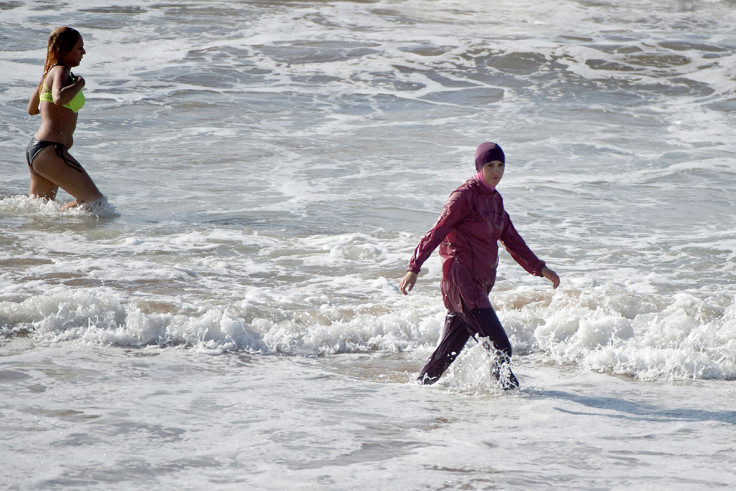Supporting the 'modest' burkini implies that women who don't cover up are 'immodest'
Liberals who say it's women's choice accept intolerant brand of Islam that seeks to control women's bodies.
Though a court on the French island of Corsica has upheld a local ban on the burkini, France's highest court just overturned a controversial ban on the swimwear enforced in Villeneuve-Loubet, setting a precedent that challenges similar prohibitions across France.
The ruling has been met with mixed feelings. Some see it as a victory for liberty, others as a gutless appeasement policy. An important nuance, however, seems to have been lost: one can oppose the burkini ban and oppose the burkini.
Religious freedom is a precious good that one can protect without celebrating every monstrosity forced upon us by the most reactionary elements within our societies as a cultural enrichment.
The burkini is not a piece of clothing that we should welcome on our beaches as a symbol of progressiveness or women's choice. It is a cultural manifestation derived from a particularly archaic interpretation of the religion of Islam, propagated only in fundamentalist Muslim societies, where women's rights are routinely trampled on.
If we accept, as the garment's inventor Aheda Zanetti has suggested, that the burkini is "just a garment to suit a modest person", we tolerate a restrictive, Islamist-inspired form of religious moralism that suggests women who cover from head to toe are superior to those who do not. If we say women wearing a burkini dress 'modestly', we imply that other beachwear is 'immodest'.

If we accept 'modest' with regard to the burkini as somewhat of a byword for 'Islamic', we stereotype not only women of no faith or other faith communities, but millions of Muslim women too, who reject the hardline Islamic dress codes.
Of course it would be intellectually dishonest to deny that some women choose to wear the burkini the way others choose to wear a bikini. It is important, however, to take into account the immense social and communal pressure many Muslim women from conservative backgrounds find themselves under.
We must not belittle the severity of the problem by celebrating the burkini as an instrument that gives Muslim women freedoms that they might otherwise not have. Forcing someone to choose between a particular dress code or remain confined to the walls of their home is not a real choice – it is blackmail.
Still, the idea that the garment constitutes a religiously implicated standard of modesty has been wholeheartedly accepted by liberals in France as well as the UK, and even broadsheet newspapers such as the Guardian run articles applauding the 'modest' dress as just another women's choice. The use of such language to describe the burkini is more dangerous than it may seem.
The burkini is not a synonymy for Islam. It is not the mainstream – it is the extreme.
The normalisation of the burkini under hardline Islamic standards of modesty that dictate a woman must be covered are also concerning in their implication, as they indicate how acceptance of more fundamentalist or even extreme interpretation of Islam is also on the rise in the West.
Defending the burkini as just another women's choice, therefore, does not just mean accepting the garment; it also results in a tacit acceptance that an intolerant, conservative brand of Islam that seeks to rigorously control women and their bodies is just as acceptable and legitimate as more progressive or moderate variants.
Being anti-burkini ban and anti-burkini is not a contradiction in terms
Western liberals and the social justice clique think that they have found their latest cause with the recent wave of hostility towards the burkini. What they do not realise is that their support for the oppression that this garment enables paves the way for the abandonment of more of the values and freedoms that we in the West hold so very dear.
Since the entire burkini debate revolves around the freedom of choice, let's be clear what choices we have. We have the choice to fight the burkini the same way we oppose the burkini ban. We have the choice to defend our treasured liberties without becoming champions of illiberal customs. We have the choice to fight prejudices against Muslims by stressing the diversity within the faith and siding with the liberal, progressive voices over reactionary, religious zealots.
Being anti-burkini ban and anti-burkini is not a contradiction in terms. In fact, it is testimony that one opposes the burkini ban for the right reasons – to celebrate our tolerance in the face of intolerance.
Julie Lenarz is the executive director of the Human Security Centre. She tweets @MsJulieLenarz.
Will TG Miller is a political analyst with a focus on the Middle East
© Copyright IBTimes 2024. All rights reserved.






